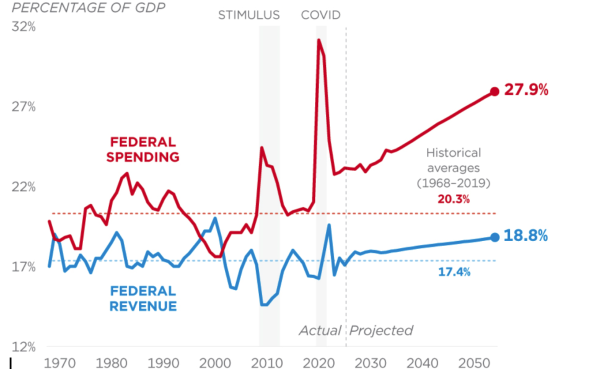Westminster implements mixed-gender homerooms
When freshman Olivia Velanova arrived at ninth-grade orientation on August 13, she found herself face-to-face with a few unexpected additions in advisement: boys. Since then, the group has met a few more times, and they will continue to meet twice a week, every week for the next three years. “It’s awkward,” said Velanova.
For the first time in Westminster history, freshman advisories now include students of all genders. Though the school has been a coeducational institution for decades, remnants of its separate-gender history still linger. As part of an accreditation and certification process for private schools, Westminster implemented these changes in tandem with a report on the school written by the Southern Association of Independent Schools. Compiled through information from interviews with students, faculty, parents, and educators outside of the school, the report suggested the re-examination of single-gender leadership of deans and advisories in order to promote equity. In addition to accreditation, the school aims to use these changes to gauge the effectiveness of mixed-gender advisements in fostering student interaction.
Some effects, said Brooks Batcheller, one of the Deans of Students along with Ralph Geeza, are already taking form. “I think we had a really successful orientation day, and I feel like that was a much more participatory and active experience this year than it was for ninth graders in the past,” said Batcheller.
In the long term, however, the outcomes may be more difficult to track.
“I think it’s going to be more subtle,” said Batcheller. “Are we noticing subtle changes in classroom dynamics? Are we seeing subtle changes in the way that people interact with one another, in the hallways, or in advisement? Are we seeing topics addressed by students in new ways, hopefully more conducive to positive interactions?”
So far, said freshman Mykah Boye, a communication barrier still seems to exist. In her homeroom, boys and girls still sit at opposite ends of the room. “When we go to advisement, we’re separated and it’s a lot quieter,” said Boye.
While visiting the homerooms, Spanish teacher and a grade chair for the class of 2022 Sofia Tosello also noticed the initial separation. Alongside the other grade chair, history teacher John Monahan, Tosello collaborated with eighth-grade deans to create the homeroom rosters. Factors such as personality types, compatibility, and diversity of opinion and background all played a role in student placement. During check-ins, said Tosello, several freshmen reported that they enjoyed the change. Nevertheless, some freshmen like Boye and Velanova still feel out of place in their homerooms.
“I would prefer to have that time to be with my friends because I don’t really see them that often during the school day instead of sitting in a group of people who I don’t really talk to that much,” said Velanova.
According to Tosello, however, the intention behind the mixing of friend groups–and genders–was to challenge students to venture outside their comfort zones. As the year progresses, Tosello hopes that the initial awkwardness felt by students like Velanova will turn into an opportunity for growth, or at least adaptation.
“I think the school really is preparing you not just to go to college, but for life,” said Tosello. “I think it’s very important to start working at this age and to see, if I’m a girl, how do I communicate with a boy or with someone that is not my gender. Is it the same? If I’m nervous, how do I get over that nervousness?”
To some, this reluctance to communicate across genders points to a larger cultural trend at Westminster. Even in classrooms, grade-wide assemblies, and the dining hall, students and faculty alike have reported noticing that the student body divides itself by gender. Therefore, said sophomore Jamie Klein, the separation of genders in advisements and other areas only reinforce the social divide. “If you make the distinction and say, ‘These people are different,’ then they grow up thinking they’re different,” said Klein.
In addition to advisories, the report drawn up by the SAIS also suggested the examination of gendered vocabulary and gender identification in the school, such as the mission statement and class lists.
“I noticed when I came here that we would talk about athletics, but we would always say female athletes and we never ever said male athletes,” said the head of the Upper School, Cindy Trask. “If you’re an athlete, or if you’re a performer, or if you’re in robotics, your gender doesn’t matter when we’re describing you… We really want to just talking about students as students; we’re human beings.”
Compared to those who have grown up in the Westminster community, new students like freshman Matias Hernandez found the separation between genders jarring jarring. “Almost every other school has mixed gender advisements,” said Hernandez. “Coming from three different schools before Westminster, it felt very weird to have the gender divide in the first place.”
In fact, several recommendations outlined in the SAIS report originated from student suggestions. Last year, said Tosello and Trask, junior and senior girls discussed with the administration possible changes to homerooms, as well as assemblies and graduation robes. They expressed their desire for a way to discuss important topics and to hear what everyone, not just girls, wants to say. And from the perspective of a senior, though the awkwardness between genders still lingers in some places, the freshman class dynamic has experienced a shift from previous classes as a result of the new procedures implemented.
“My freshman year was very ‘guys are friends with guys, girls are friends with girls,’” said senior Emma Bussey. “As I’ve gone through the years, my grade has started to assimilate more to each other and grown mature, where now it’s common to have friend groups that have an equal number of everybody. And I look at freshmen and I look at who they’re friends with and who they hang out with and they’re so not segregated… The steps that are being taken are already helping.”
On the other hand, some in the senior class believe that the integration of genders actually hinders meaningful conversation. Same-gender spaces on campus, said senior Will Wallace, have the same function as affinity groups.
“I think you’re basically talking about the same idea; it’s a group of people that share a common identity – boys and girls – just like how we have different affinity groups with people of different ethnic backgrounds,” said Wallace. “I know in my homeroom, we had some discussions that were very productive and very helpful, but we probably would not have been willing to have those discussions if there were girls in the room.”
Furthermore, the conversation surrounding gender-neutral spaces on campus has already inspired discussions around other modifications. Though the new advisements may be a small step, according to Wallace, more drastic changes could lead the school away from its roots, such implementing black graduation robes for everybody instead of white for girls and black for boys.
“I know that there’s a girl in ninth grade who has a mother who went to Westminster and also a grandmother who went to Westminster, and both of them graduated in white,” said Wallace. “Traditions keep the community attached to those who came before us… Why would you want to get rid of it? That has been something that’s defined Westminster. That is something that is unique about Westminster. In a way, that’s chipping away at the identity of this institution that has been built over little more than half a century.”
On the contrary, Batcheller believes that cosmetic change in dress, logo, or advisement does not reflect a change in Westminster’s core mission. Rather, he said, research suggests that coed advisement programs in coed schools develops cross-cultural communication skills, and that they build empathetic leaders capable of considering problems from multiple perspectives in the real world. And according to Batcheller, it is in the holistic preparation of the student for the professional sphere outside of school where Westminster’s tradition roots itself.
“I think Mr. Evans has actually said it really well,” said Batcheller. “We are still going to attract the same type of student and we are still looking to produce the same type of graduate. How we do it, on the other hand, always needs to change with the times… There’s a reason that when [Mr. Evans] describes the graduates that he thinks Westminster should produce, he’s using the language of Dr. Pressly that he came up with in the first five years of the school.”
Furthermore, said Bussey, the shift towards gender integration makes the school a more inclusive environment for its transgender or nonbinary students. “People in eighth grade that may have heard about gendered homerooms in ninth grade, trans students, will be in fear of that… but now they don’t have to put themselves through that anxiety anymore,” said Bussey.
As one of the leaders of Westminster’s gender and sexuality alliance Spectrum, Bussey plans to hold discussions about the culture surrounding gender at the school. And like numerous other clubs and programs around campus, Bussey plans to involve underclassmen in shaping the future of Westminster.
“I also want to create some activism opportunities for the up and coming leaders of this campus,” said Bussey. “I want to see what people can do and what people are motivated to do as a group and to actually enact change in this school. Okay great, we got homerooms, check. But that’s not it. We’re not done.”
In terms of future administrative changes, said Batcheller, he is focused solely on the task ahead: working with Tosello and Monahan to address challenges surrounding the new advisements, and to chart its progress. Furthermore, the administration does not aim to impose a path for the school towards a set goal. Rather, the goals originate from every student regardless of opinion, said Trask.
“The school is not about an administration team or me as a person having a vision for the school,” said Trask. “This is about the students who are here having a vision and an idea about what they want and then, for me, to help move that forward.”
Moreover, said Trask, she looks forward to working with the freshman class to create their own path for Westminster to take. The trouble, though, seems to be convincing the underclassmen of their place at the table.
“We don’t have the privilege yet of being able to make those decisions,” said Velanova. “We’re underclassmen; it’s not up to us.”




